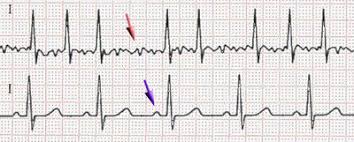Author Interviews, Heart Disease, Lipids / 18.07.2019
Lipid Control Treatment Gap in Patients with Atherosclerotic Disease
MedicalResearch.com Interview with:
Guanmin Chen MD PhD MPH
Senior Biostatistician Research Facilitation, Alberta Health Services
Adjunct Research Assistant Professor
University of Calgary
Co-authors: Guanmin Chen, PhD, MD, MPH, Megan S. Farris, MSc, Tara Cowling, MA, MSc, Stephen M. Colgan, PhD, Pin Xiang, PharmD, Louisa Pericleous, PhD, Raina M. Rogoza, MSc, Ming-Hui Tai, MSc, PhD, and Todd Anderson, MD
MedicalResearch.com: What are the main findings?
Response:
- Atherosclerotic cardiovascular disease (ASCVD) remains a significant cause of morbidity and mortality in Canada (and worldwide). Despite the established benefits of treatment with statins, most Canadians fail to achieve dyslipidemia targets (a risk factor for ASCVD).
- The objective of this study was to examine current treatment patterns of lipid-lowering therapies for the management of low-density lipoprotein cholesterol (LDL-C) in patients with ASCVD.
- This was a retrospective cohort study conducted using province-wide administrative health data from Alberta, Canada. Datasets used included health services, pharmaceutical, and laboratory data, in addition to the Alberta population registry. The study population consisted of individuals aged 18 years or older diagnosed with ASCVD between 2011-2015, based on International Classification of Diseases (ICD) codes. The cohort was then restricted to individuals with an initial (index) LDL-C measurement after ASCVD diagnosis and at least one year of pre-index data and one year of follow-up data.




























